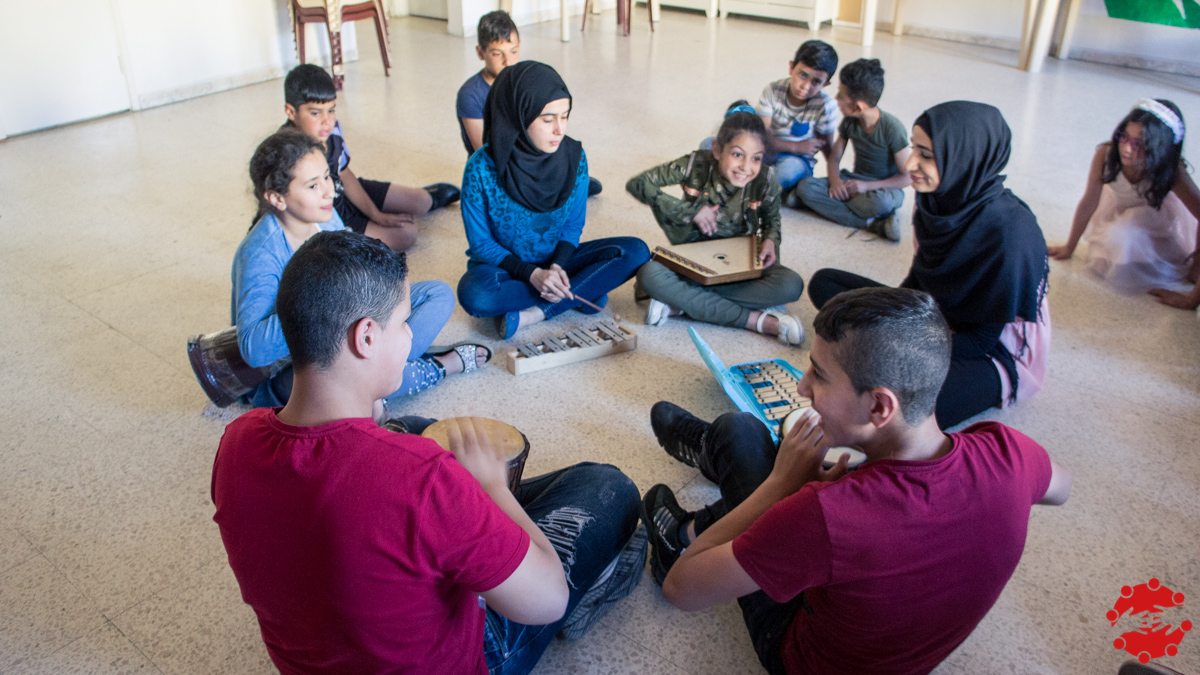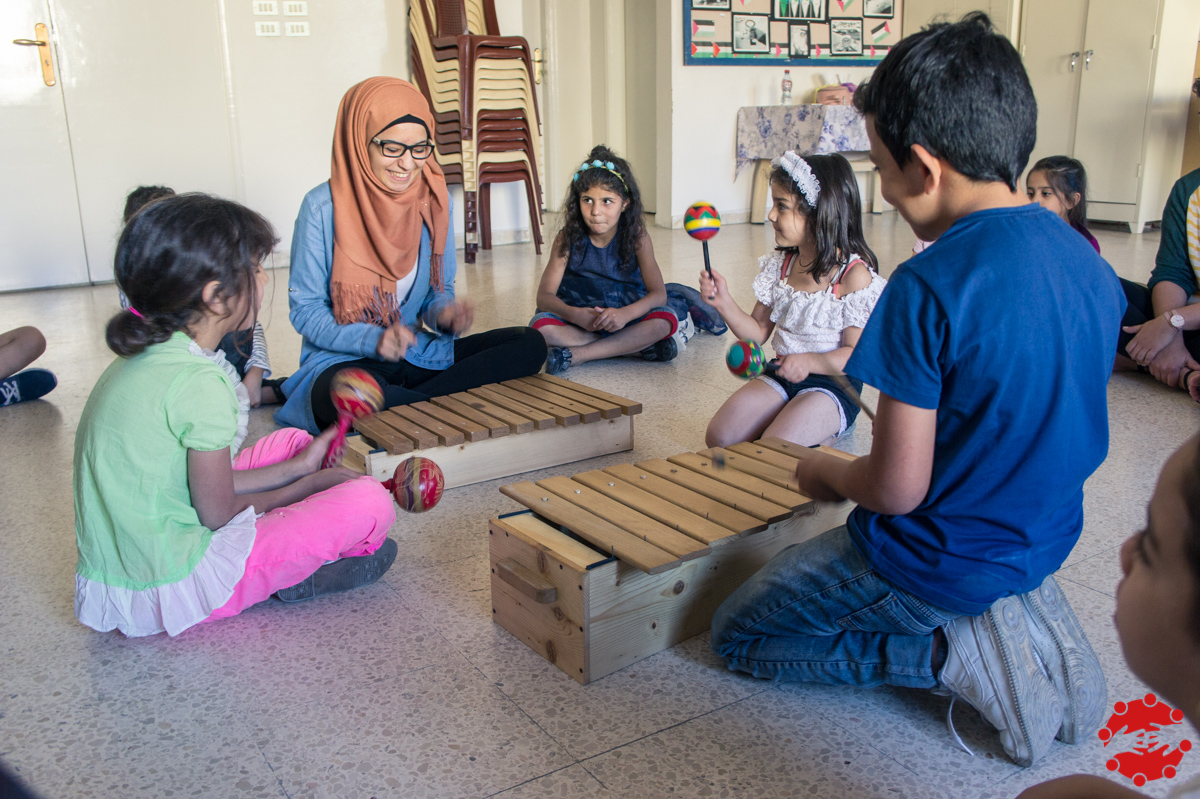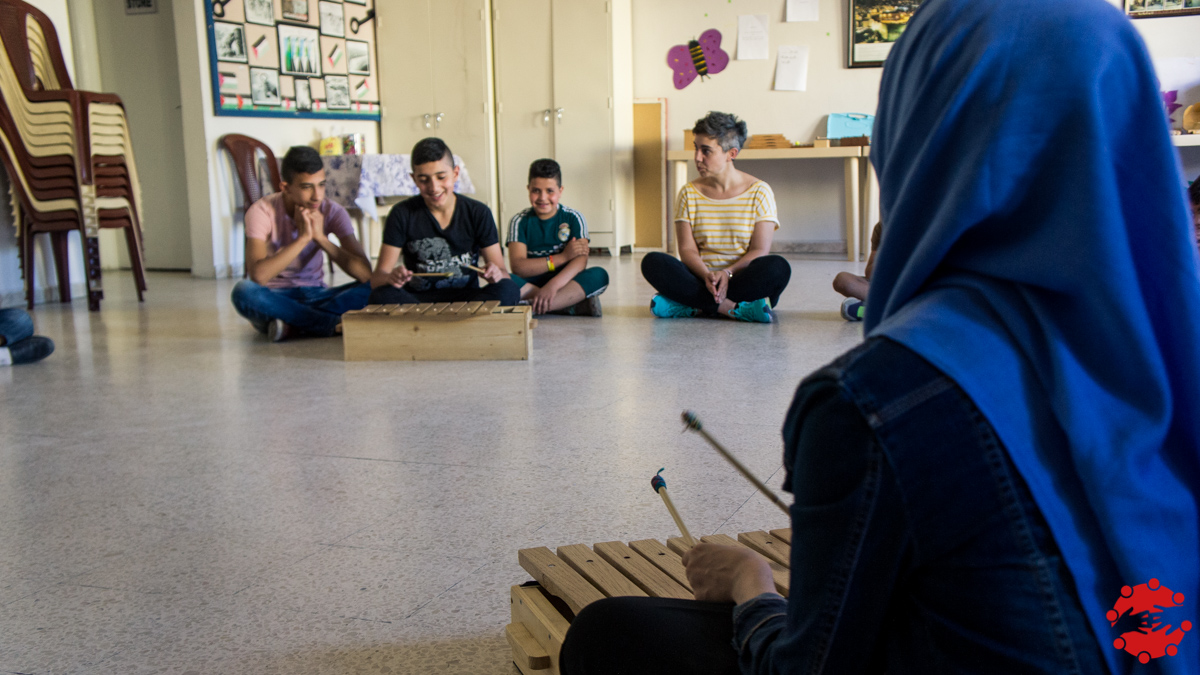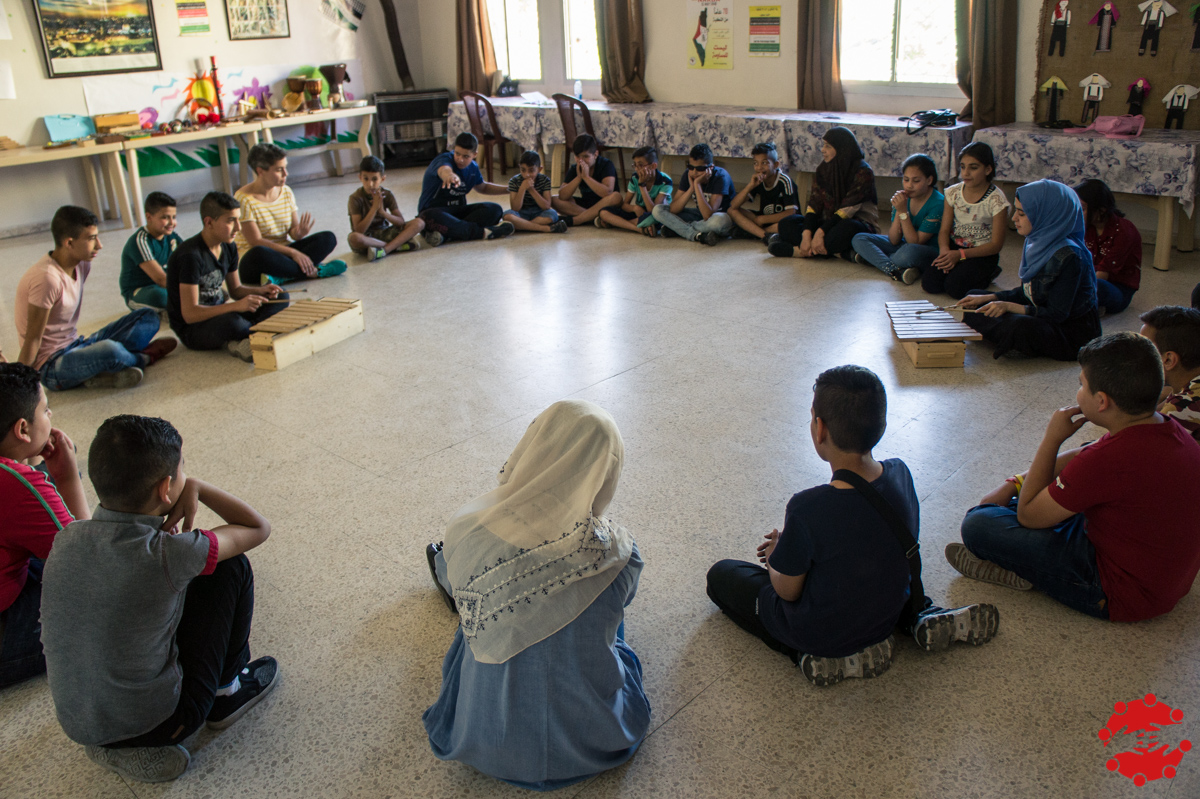Psycho-social support with music (PS)
Psycho-social support with music, situated conceptually between clinical and artistic applications of music, comprises a multi-disciplinary and flexible psycho-pedagogic approach, based on two important premises of community music practice: the innate musicality of human beings, and the potential of music to promote well-being, both individually and socially.
The inclusive nature of making music together supports development of the perception of the self in relation to others, improving modulation of personal expression. Non-competitive ways of achieving satisfying common goals can be demonstrated. These processes simplify the acts of sharing and cooperating, bringing the various participants closer to each other, whoever they may be.
The focus on psychosocial support in the workshops does not require specific musical skills or equipment. Therefore, it is very useful where more articulated forms of music education are not possible.
This is the case of El Jalil refugee camp in Baalbek (Beqaa valley: see Figure 1). This was the only camp devoid of musical activities of any kind (maybe due to its more isolated location, with respect to all the other camps on Lebanon’s coastal strip). In this camp there were no musical instruments and no evidence of formal musical competence in the community.
Facilitators, children, educators
In M&R’s psycho-social support workshops, both children and local educators are active subjects. The route is not pre-set by the facilitators; rather, through inviting involvement in games, songs, and creative assignments, they indicate possible pathways and vistas, adopting an attitude of “deep listening”(2) in order to observe and, as far as possible, comprehend the group’s reactions, proposals and requests.
The facilitator’s role requires them to alternate sensitively and flexibly between guiding, pointing out interesting details (often using mimesis, without interrupting the musical flow), and taking a step back to follow someone else’s lead, ready to support when necessary.
Embedded within this process, and running parallel to it, is the training of the local educators, for whom the workshops with the children afford the “doing” step of their dedicated Action Learning Cycle (see Figure 2). The complementary steps of observation of documentation, reflection, learning, and re-planning take place in regular sessions without the children. These are facilitated by the European musicians when they are in Lebanon, and set a framework for weekly monitoring sessions for the local education team throughout the year.
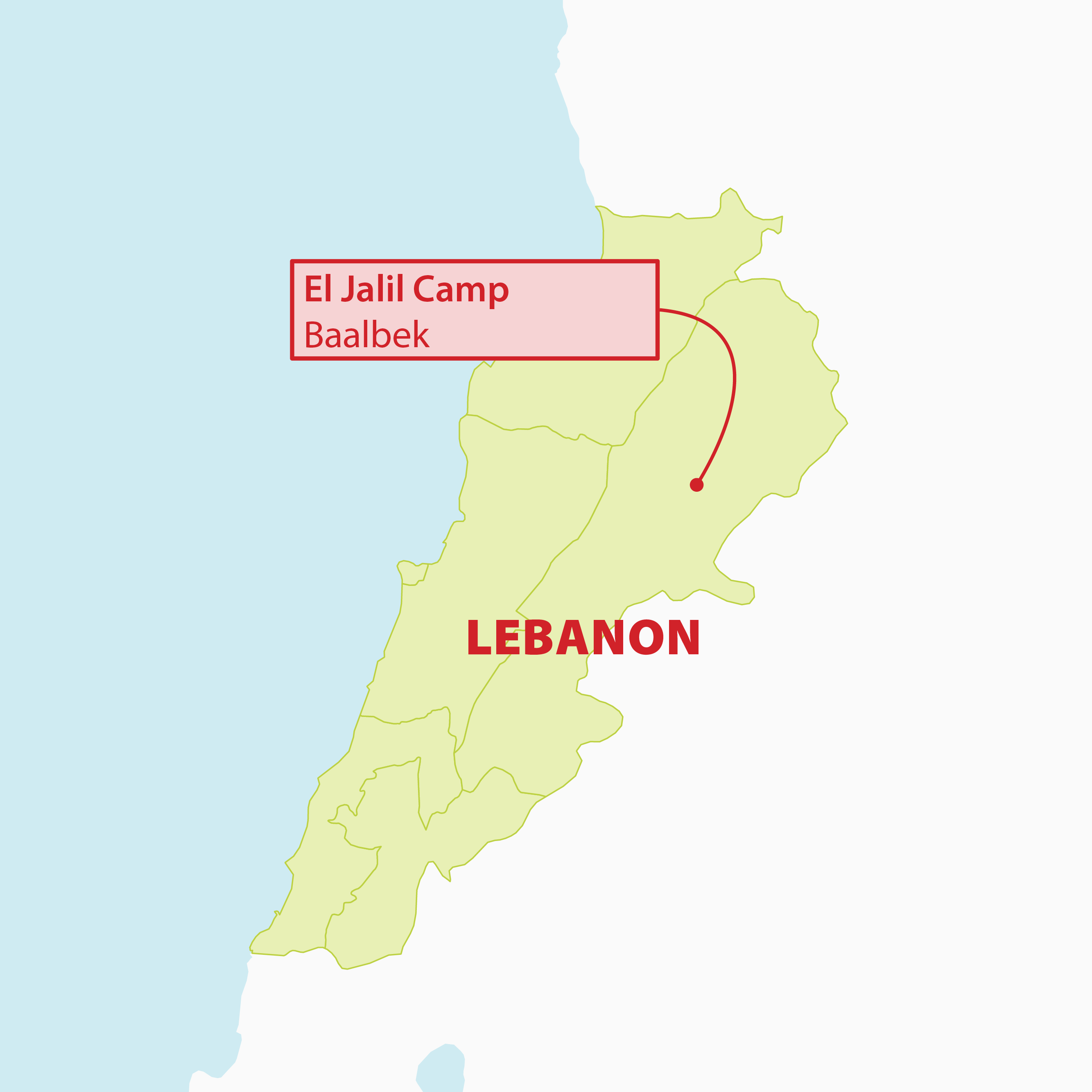
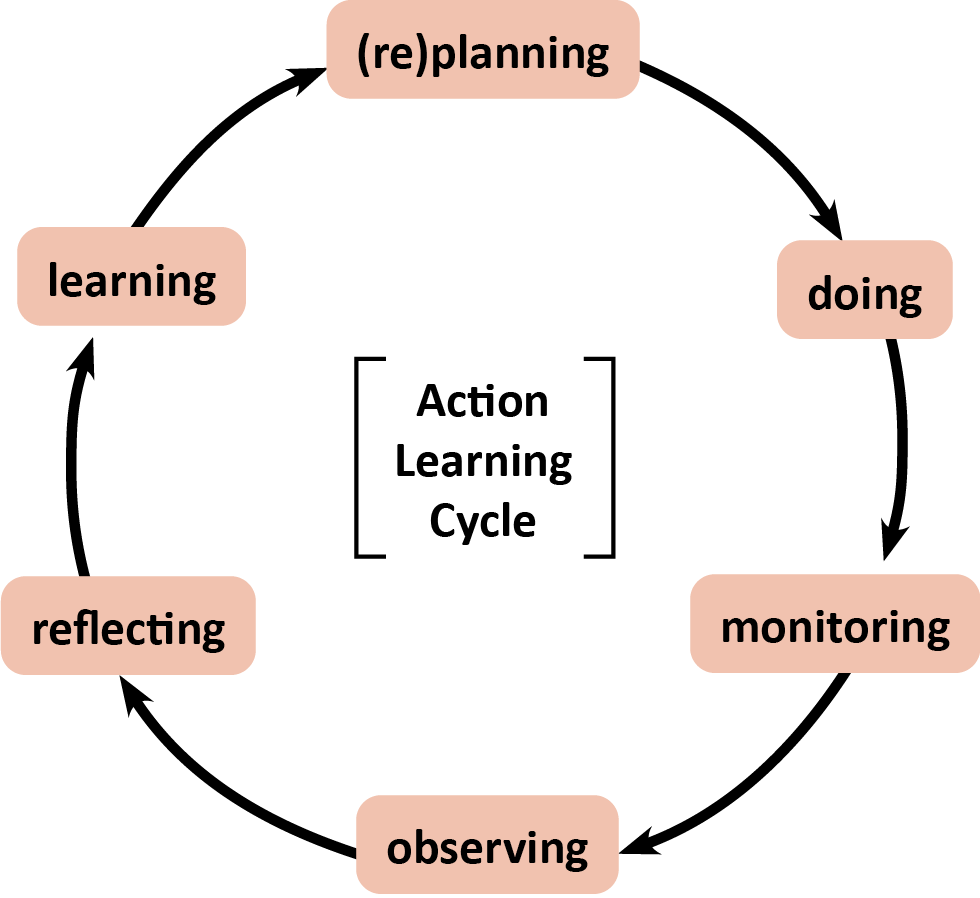
The “Action learning cycle” is described within the Theory of Social Change as “an approach that accompanies and seeks to enhance existing change processes and to surface potential through continual learning”(3).
In 2017 the M&R team, with the involvement of European students on field training for the MARS diploma, was able to offer the first PS music workshops for the children of El Jalil.
The video documentation bears witness to the style of facilitation adopted by the European trainers during the workshops, with respect both to the children and the local educators. These latter subjects could be thought of as fully equipped members of an exploring team discovering a new terrain, accompanied by guides who are more familiar with the area.
Adapted from the article Adjusting the pitch, section 4b (pp. 11-13).
Photos from the PS activities in El Jalil camp, Baalbek, 2018.
Notes
- Pavlicevic, M. and Ansdell, G. (2004). Community music therapy. Jessica Kingsley Publishers. ^
- Pavlicevic, M., & Impey, A. (2013). Deep listening: towards an imaginative reframing of health and well-being practices in international development. In Arts & Health, 5(3), pp. 238-252. https://doi.org/10.1080/17533015.2013.827227. ^
- Reeler, D. (2007, p. 21). A Three-fold Theory of Social Change and Implications for Practice, Planning, Monitoring and Evaluation. Community Development Resource Association, South Africa. Available at: https://www.shareweb.ch/site/Poverty-Wellbeing/Documents/media_-_addressing_poverty_in_practice_-_impact_hypotheses_-_reeler_a_theory_of_social_change.pdf ^

